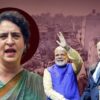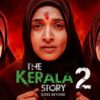The Supreme Court on Wednesday postponed the hearing of an appeal by the makers of the film Udaipur Files: Kanhaiya Lal Tailor Murder to July 21. The appeal challenges a Delhi High Court order that paused the movie’s release until the Central government makes a decision on the issue. The court said it would wait for the government’s decision, which was scheduled for the same day.
A bench of Justices Surya Kant and Joymalya Bagchi raised an important question about which right should take priority if there is a conflict between the Fundamental Right to Free Speech and Expression under Article 19 and the Right to Life and Liberty under Article 21 of the Constitution.
The court noted that the Central government’s hearing on the film’s certification, issued by the Central Board of Film Certification (CBFC), was scheduled for Wednesday afternoon. The judges said, “We expect that the (Centre’s) Committee will decide the revision petition immediately without any loss of time.”
The Delhi High Court’s order came after a plea by Maulana Arshad Madani, head of Darul Uloom Deoband, and others. They argued that the movie, based on the 2022 murder of tailor Kanhaiya Lal by alleged Islamic fundamentalists, contains dialogues and scenes that could stir communal tensions again.
Senior Advocate Gaurav Bhatia, representing the filmmakers, said the producer, director, and Kanhaiya Lal’s son have been receiving continuous threats. The court allowed them to approach local police, saying, “In case merit is found in apprehension, necessary steps be ensured to prevent harm to their lives.”
Bhatia also challenged the Delhi High Court’s order, pointing out that the film had a valid certificate from the CBFC. At the start of the hearing, the bench asked about the status of the government’s review, and Senior Advocate Kapil Sibal, representing the petitioners opposing the film, said the hearing was set for 2:30 pm.
Justice Kant remarked, “That hearing is taking place today… should we not wait? We can have the advantage of Union’s view in the matter.” He added that if the government suggests cuts or changes, that would be part of the decision. The court said it would keep the petitions pending until the government makes its decision.
The court also heard a petition from Mohammad Javed, one of the accused in the murder case, who argued that releasing the film could affect his right to a fair trial. Senior Advocate Menaka Guruswamy, representing Javed, said the movie involves two ongoing legal matters: the Gyanvapi dispute and the Kanhaiya Lal murder. She claimed the film shows the judiciary in a negative light, bordering on hate speech, and damages the reputation of the courts. She said, “They can’t claim free speech to violate fair trial or lower the judiciary’s reputation.”
Bhatia asked the court to hear the case urgently, saying the high court order was wrong because the CBFC certificate carries a legal presumption. Justice Kant responded that the government has the power to review that certificate and form its own opinion. He said, “Let us see what view they will form.”
The judge added that if the filmmakers suffer losses due to delays, the court could consider compensation later. Bhatia insisted, “That cannot be a substitute to my right which I want to exercise under Article 19 of the Constitution.” To this, Justice Kant replied, “If there is a fight between Article 19 and 21, should we support 19 or 21?”
Earlier, on Tuesday, Justice Kant had said in another case that Article 21, which protects life and dignity, should prevail over Article 19 when rights come into conflict. He explained, “Right to dignity also emanates from the right which someone else is claiming… Article 19 can’t overpower Article 21… Article 21 must prevail if any competition takes place.”
Bhatia argued that Supreme Court judgments have held that judges are not easily influenced by movies or news when deciding cases. Justice Kant agreed, saying, “You are right. Our judicial officers are not schoolgoing children or adolescents that they can be affected by movies or misled by dialogue in a movie to decide a case… The most important thing is the sense of detachment they carry… We have no doubt about that. But at the same time, if a person has some apprehension, he needs to be heard.”



























































